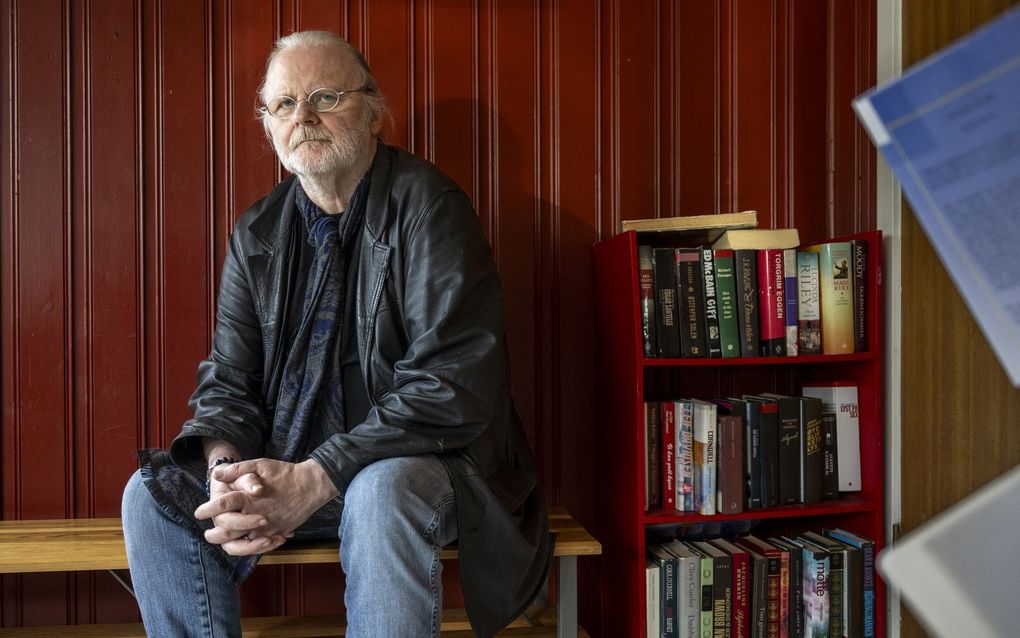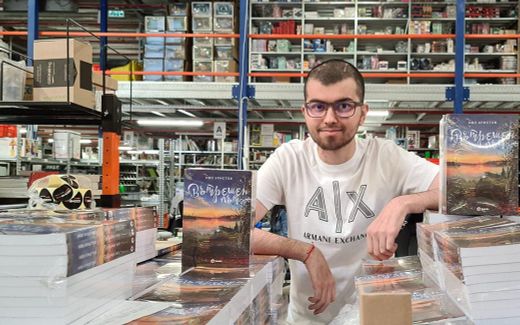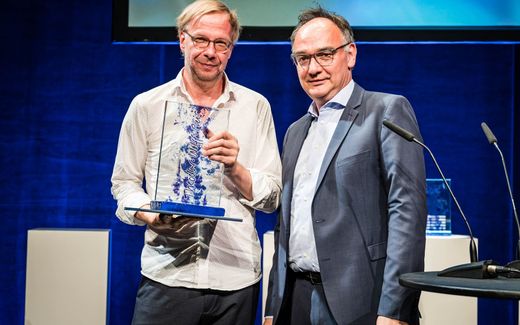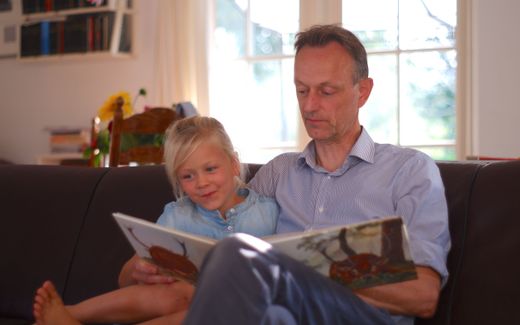Nobel Prize author says faith in God inspires his writing

Norwegian playwright Jon Fosse poses for a photo at his home near Frekhaug, north of Bergen in Norway, after the Swedish Academy awarded him the 2023 Nobel literature prize. Photo AFP, Eirik Hagesaeter
Northern Europe
This year, the Nobel Prize in Literature went to a Catholic Christian author from Norway.
Over the years, 64-year-old Jon Fosse has stepped up to become the country’s top playwright, children’s book author, and poet. His works have been translated into 50 languages, and he has recently “made his mark” in his novels, as reported by Dagen.
Fosse’s works have been influenced by his Catholic faith. He converted to Catholicism in 2013 and received a sacrament of confirmation at Sankt Dominik's monastery church in Oslo.

Biblical parallels
Those who have read Fosse’s works often find Biblical parallels. Take his novel, Andvake, a story about two children, Asle and Alida who will soon have a child and are walking around without shelter. Åse Høyvoll Kallestad, an instructor at the Norwegian University of Applied Sciences, says that her favourite book, Andvake, can be seen as a motif of Mary and Joseph. She also encourages Christians to read his works.
“Fosse draws complex characters, and through them describes both the possible and impossible aspects of life,” she said to Dagen.
While Fosse says that some may find clear Biblical motifs, they are often left unintentional. Yet, Fosse remains an admirer of God’s Word and considers it a primary influence in his life. He provided guidance when it came to the rollout of a new Biblical translation in the country, Bibelen 2011. “I am grateful that I met the words of the Bible both at school and elsewhere,” he said.
Shining darkness
In his works, Fosse chooses to let his readers wrestle with the mysterious aspects of God. When the theologian Kjell Nyhus researched his writings, he noticed that he would turn mystic traditions into figures of speech. Fosse often writes about the “shining darkness,” where “everything converges towards the One,” Nyhus says. Fosse has also been found to use expressions such as “inner light” or metaphorical illustrations of the angel within us- a wounded angel, a dark angel, or a sad angel.
“Fosse does not write about mystery, but he writes in such a way that the reader experiences that the world and reality are enigmatic and much bigger than what we understand and can put into words,” Nyhus said in a Vart Land report.
Memories
As the main character in Septology looks out at the fjords and sea, many memories come over him- both good and bad. Looking back at Fosse’s life, one can see several redeeming moments along with habits that hung like curses. Fosse enjoyed alcohol which led him to drinking every night.
“I drank a lot for many years, but without it being a problem for anyone. The fact that I ended up drinking far too much had other reasons. But when the alcohol completely took hold, it became a big problem. Because I always have to be very sober when I write, otherwise I write badly,” he said in another report in Vart Land.
Solitude
However, he stopped after his conversion to Catholicism. Both he and his third wife, Anna, are Catholics that have explored their faith together. Fosse says that it is important to keep away from noises. He never watches TV nor listens to the radio. He rarely listens to music. In the midst of pursuing solitude, Fosse sees writing as a confession and a prayer.
“Writing is in itself a way of asking for forgiveness. I think so. And it's probably prayer, too. When you pray, it is not the satisfied person in you who prays. Not the smug one in you. Often, I think that the worse a person has it, the closer they are in a certain sense to God,” he said.
Soul search
Fosse was not always a practising Catholic. Before embarking on his soul search, he became an atheist after leaving the Norwegian church at 16, according to an RDreport.
Later, he came across the works of German philosopher Martin Heidegger and a Medieval-era writer named Meister Eckert. One passage from Eckert stood out, which Fosse later embraced as “negative theology.” For Eckert, one must become “empty” of the perceptions we have of God. Only then will there be “room for God’s presence.”
Central place
When Fosse finally left room for His presence, that was when he found a home - the Catholic church. “If you convert to the Catholic Church, you naturally consider yourself a Christian, which means that Christ takes a central place in the way you understand life and the world. It still does not mean that you know something, but that you choose to believe it,” he said to NRK, which was quoted in Dagen.
Related Articles










